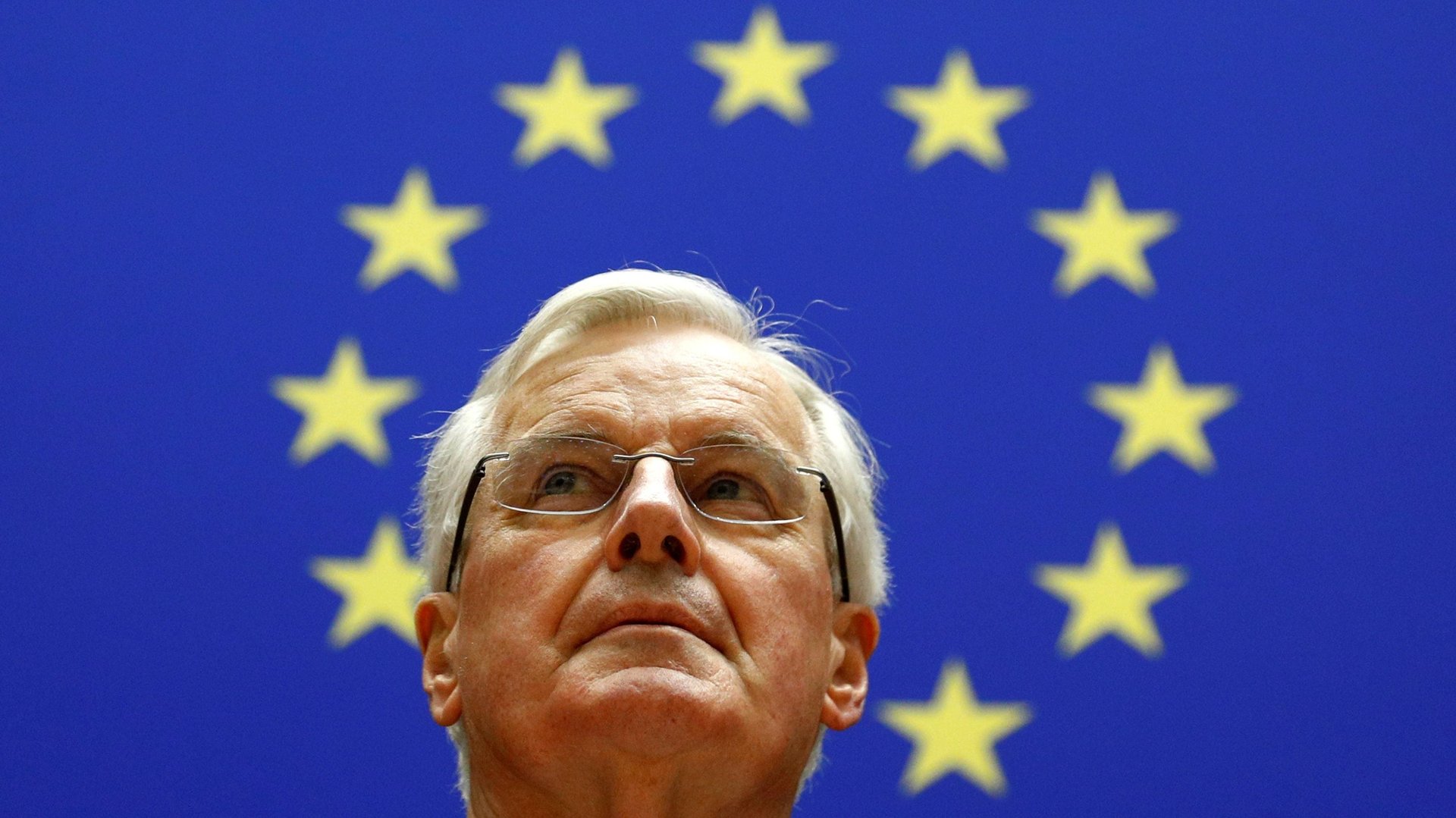The UK and EU brace for a Brexit problem they didn’t anticipate
The head of the EU’s Brexit negotiations, Michel Barnier, tested positive for coronavirus today. Negotiating a UK-EU free trade agreement was always going to be enormously difficult. Now there is a global pandemic getting in the way.


The head of the EU’s Brexit negotiations, Michel Barnier, tested positive for coronavirus today. Negotiating a UK-EU free trade agreement was always going to be enormously difficult. Now there is a global pandemic getting in the way.
The two negotiating sides had already concluded the first round of talks, which began earlier this month. They were due to meet yesterday to launch the second round, but those plans were put on pause as countries sought to combat the spread of coronavirus.
The previous round involved more than 200 officials, including Barnier himself, across 11 different working groups. At first, both UK and European negotiators were considering ways to maintain that setup using video conferencing, but abandoned the idea after realizing it would not be feasible to implement at such a scale.
British officials maintain that the Brexit transition period that runs until Dec. 31, during which the UK remains in the single market and customs union, will not need to be extended. The EU had previously said the timeline was “impossible,” and that’s before the emergence of coronavirus, whose epicenter is now in Europe.
“We are confident that we can get this done, and I do not think that delaying Brexit negotiations would give anyone on either side of the channel the certainty they need,” said Britain’s foreign secretary Dominic Raab earlier this week.
Either the UK or EU can request an extension of up to two years for the transition period. Prime minister Boris Johnson, who scored a decisive December election win on the back of a “Get Brexit Done” campaign slogan, is keen to avoid such an outcome. The UK had previously extended the Brexit date that was originally scheduled for Mar. 29, 2019 three times, before finally departing the bloc on Jan. 31 this year.
Another reason Johnson might want to avoid extending the transition period is because it could require more financial contributions to the EU. But considering the scale of the costs associated with coronavirus, something chancellor Rishi Sunak seeks to counter with a £350 billion ($402 billion) rescue package, a further economic blow from Brexit after Jan. 1 won’t do the government any favors.